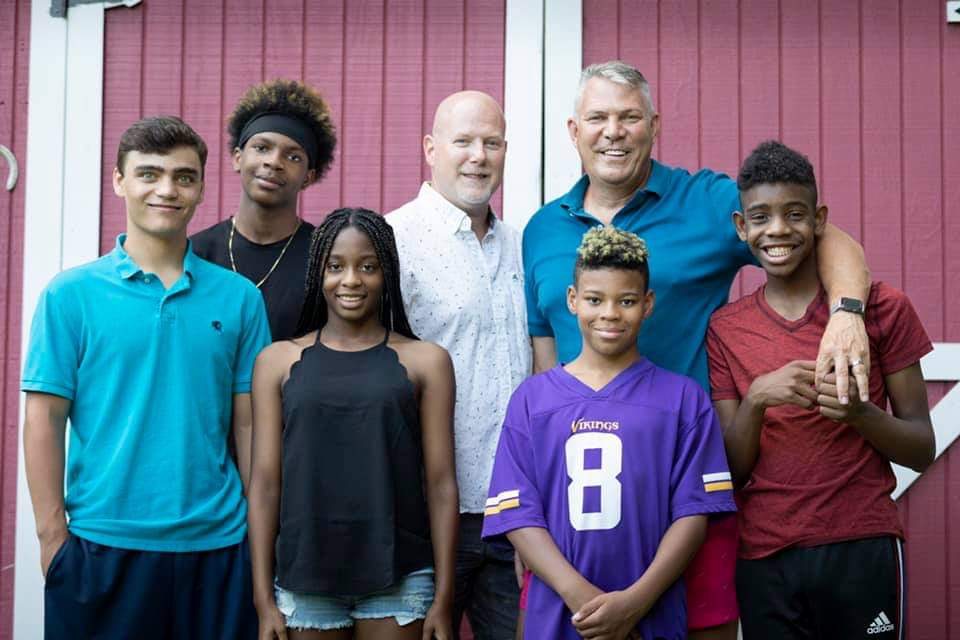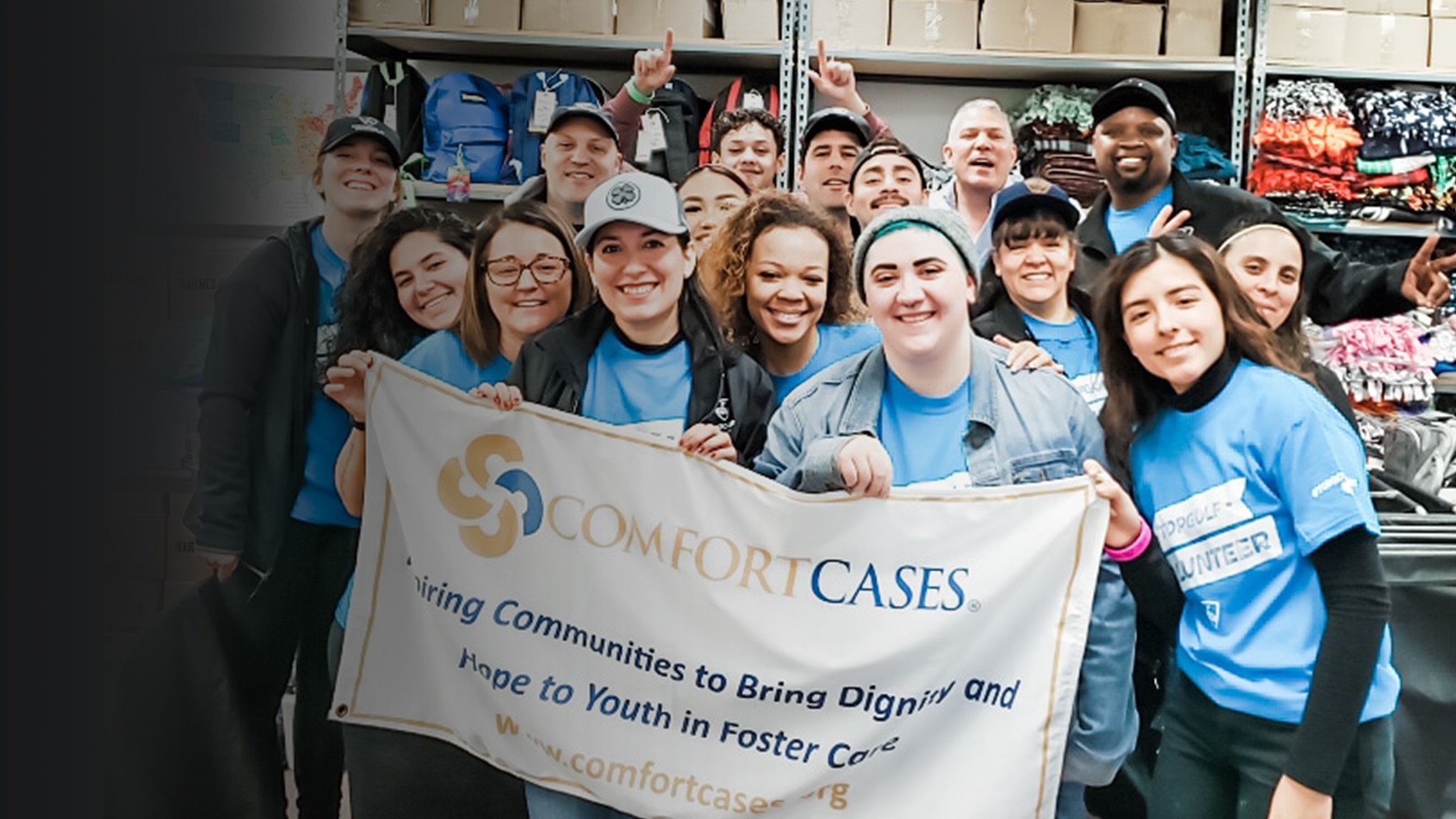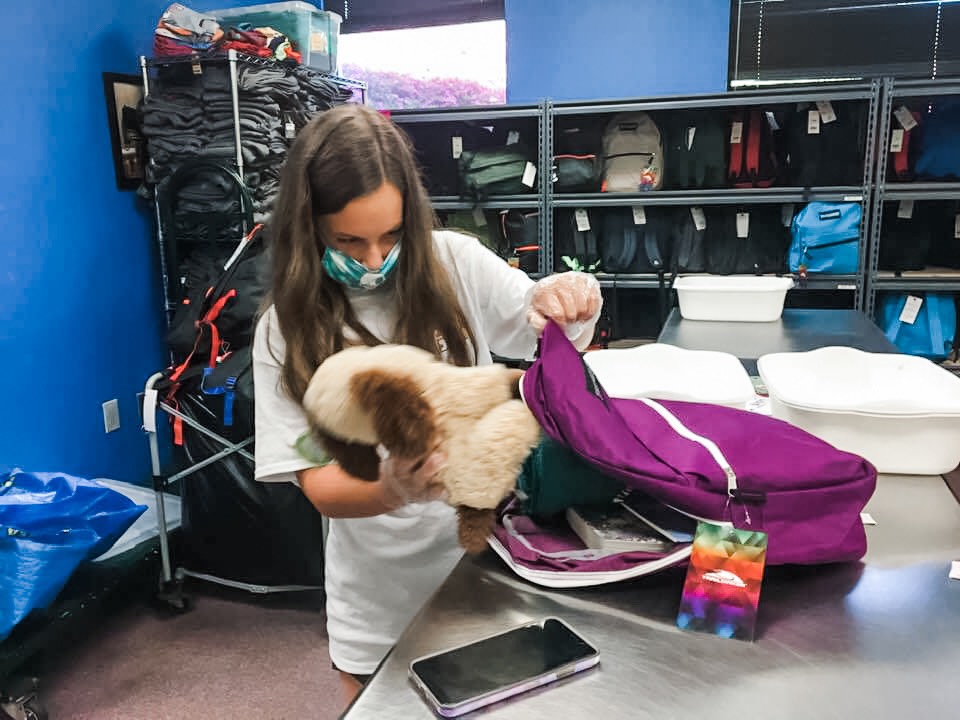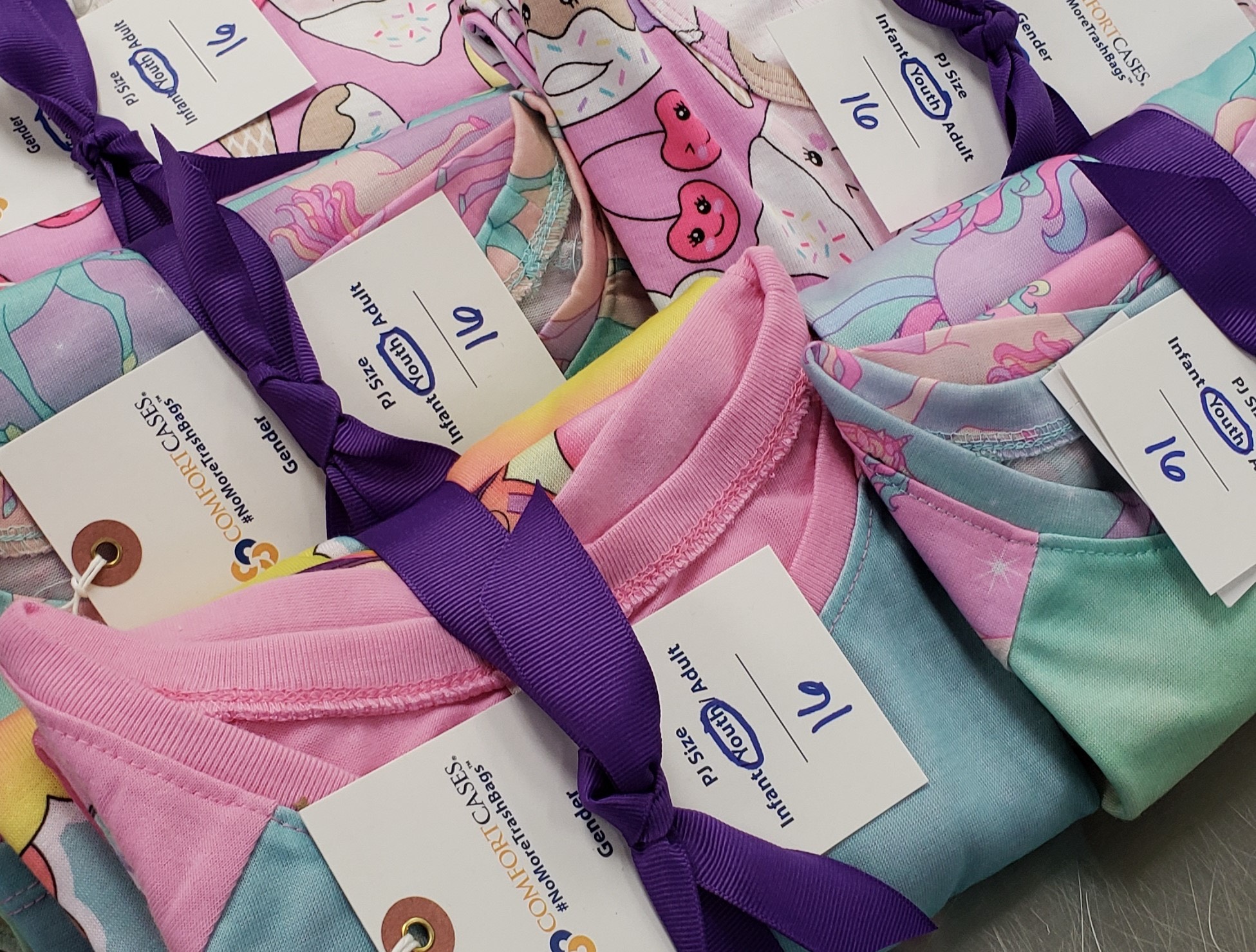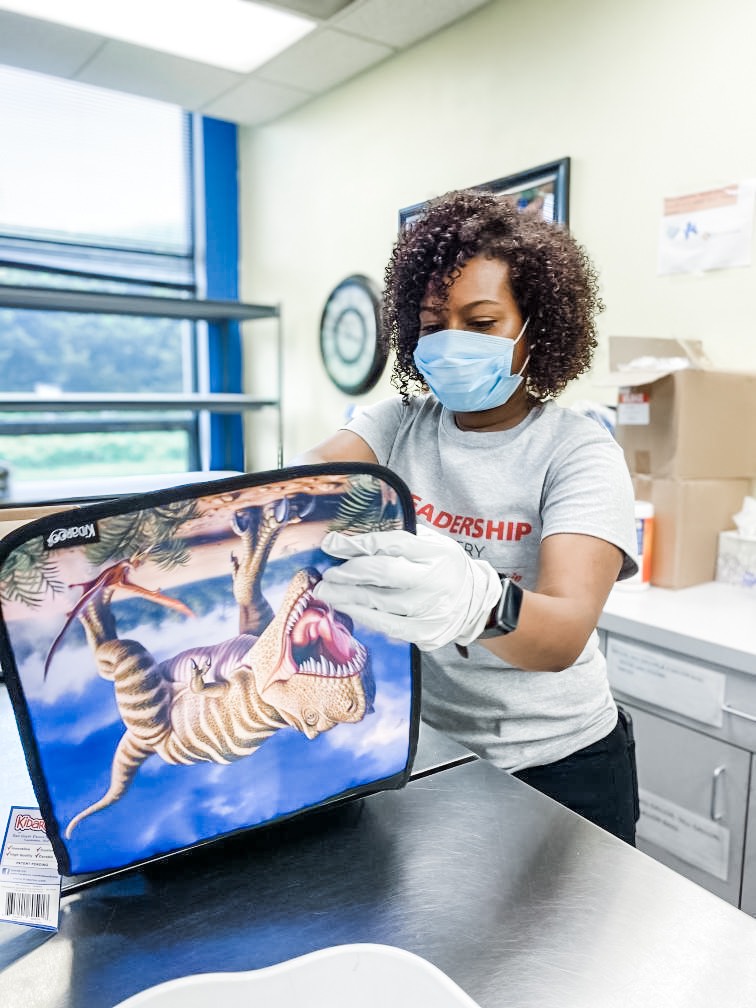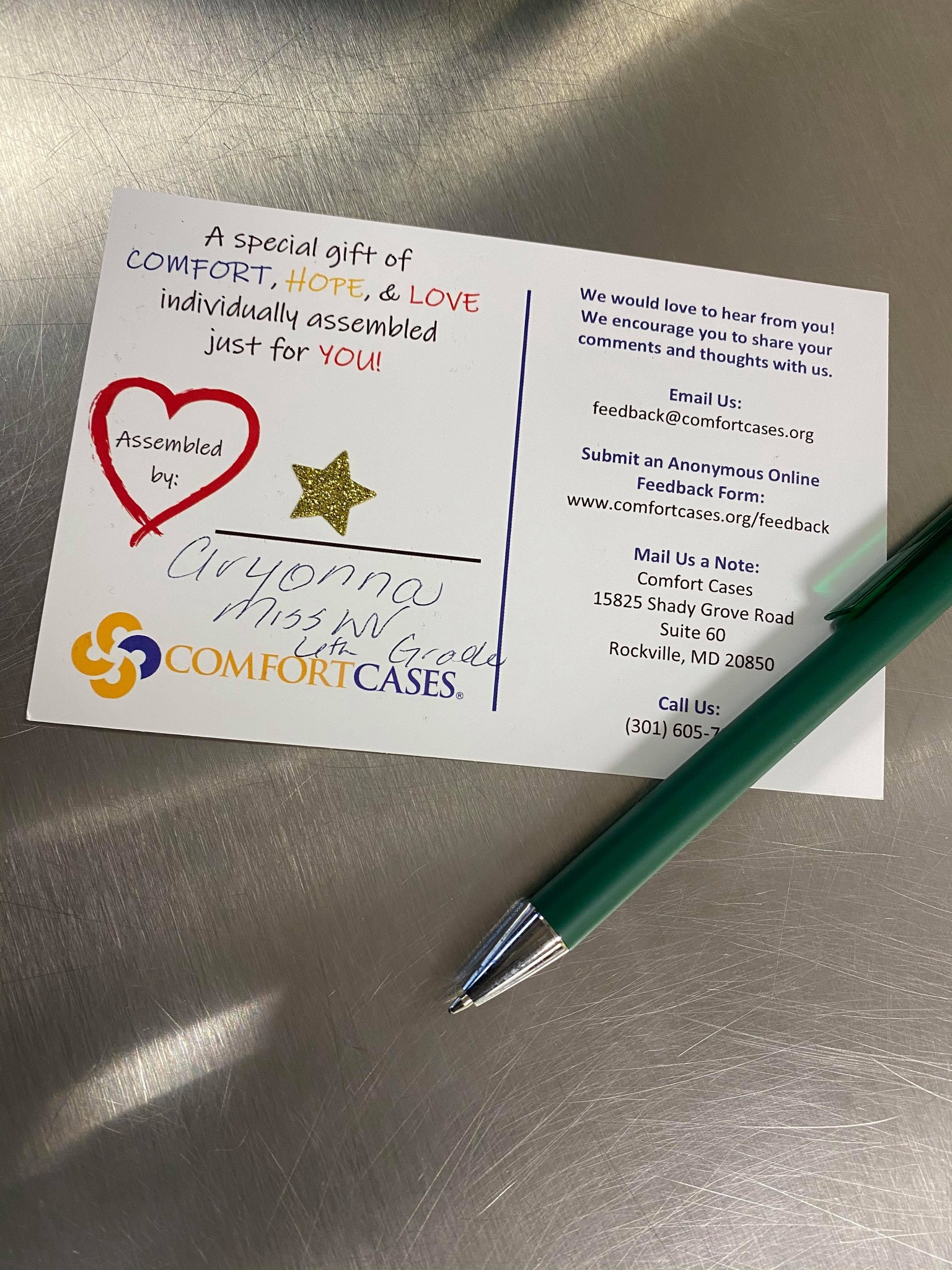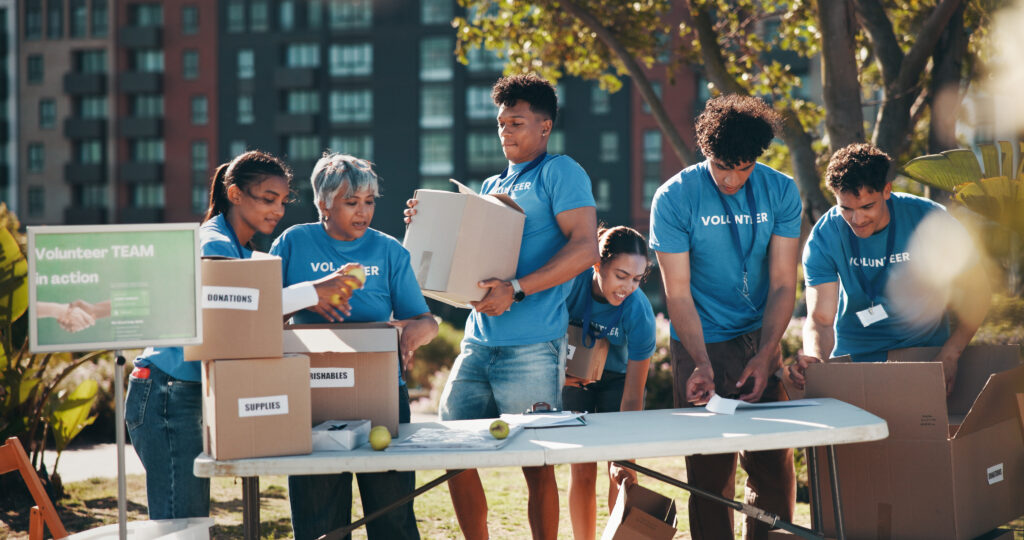Hope in a Backpack
When Comfort Cases Founder Rob Scheer met his oldest son, Alex, he was speaking to a group of boys at a high school in Virginia. He shared with them that growing up he moved from shelter to shelter and, eventually, went into foster care at age 12. His foster mother was kind and devoted, but his foster father was abusive.
“Two weeks after my 18th birthday, I came home from school. Instead of someone asking me how my grades were, or how I was doing, my foster father handed me a trash bag,” Scheer explained to the students. “He informed me that with the check no longer coming in, I was no longer welcome to live there.”
Suddenly, Rob was homeless, tossed out with the trash bag that held all his worldly possessions. As he wrapped up his talk at the school, he could see in his peripheral vision a young boy who was getting emotional. Rob recalls, “Alex walked up to me and said, ‘I’m going to age out of foster care and I’m going to be homeless just like you.’” Though he had a 3.6 grade point average, the future looked bleak to him.
Rob handed Alex a business card: “We’re going to figure this out. Call me.” Rob invited him to family dinner with his husband Reece Scheer, Comfort Cases’ Co-Founder, and stay-at-home-dad to their then-four children, Amaya, Makai, Greyson, and Tristan. As they all got to know each other, something became clear: he was the big brother that their big family had been missing. They petitioned to have a no-stipend guardianship of Alex. Today, he is a high school graduate, enrolled in community college full-time, and the Scheers have started the formal adoption process.
Rob and Reece can’t personally welcome into their home all of the 438,000 U.S. children in foster care, but they keep them at the forefront of their hearts, advocacy, and work. Created in 2013, Comfort Cases set out to eliminate trash bags in the foster care system and supply children with brand new backpacks filled with age-appropriate essential items and comforting toys, blankets, and stuffed animals. Rob, a former banker, admits he didn’t know the first thing about non-profits when he started, but did know that the .ORG domain was a natural home for Comfort Cases.
“We’re a 96% volunteer run charity. So, 97 cents of every dollar go to the mission,” Scheer says. “Being a .ORG communicates our values. It shows the public you’re a giver, not a taker.”
To date, Comfort Cases has given dignity and hope to 110,000 children in the foster care system throughout the United States and Puerto Rico. In addition to providing the backpacks, they also educate the public about issues facing youth in foster care. Their work is funded by donations and supported by volunteers.
“Being a .ORG communicates our values. It shows the public you’re a giver, not a taker.”s
“There are so many ways to get involved and help further our work.” says Scheer. “You may not be able to give money right now, but can you write a thank-you note? Clean our database out? You don’t have to be the richest person in the world to make a difference in our country. Ten dollars a month will take a trash bag away from a child. We all can be part of the change.” Supporters also can help by filling backpacks in the Comfort Cases National Center in Rockville, Maryland or by purchasing items from their Amazon wish list.
The Scheers have gained national attention with their devotion to the cause. Rob and Reece were included in the recent Bryce Dallas Howard documentary, “Dads,” on Apple TV, and have been featured on The Ellen Show and other major media outlets. Comfort Cases also worked with Sesame Workshop, www.sesameworkshop.org, to help create a Muppet in foster care, named Karli, who is living with her “for now” parents. They also have a podcast, Fostering Change, which brings to light the effects of being in the foster care system, which can include everything mental health struggle, social isolation, and suffering from post-traumatic stress disorder (PTSD). Additionally, those interested in Rob’s story can read his inspirational memoir, “A Forever Family: Fostering Change One Child at a Time”, which is available from Amazon.
“Here we all are complaining about feeling a sense of chaos and instability during the pandemic. For kids in foster care, every day is a pandemic,” Scheer says. “Children who exit the foster care system have twice the rate of PTSD as combat veterans.”
And that’s why the Scheers do what they do—when they’re not hanging out on their farm with the five kids, two cats, two dogs, one bird, three goats, several chickens and ducks, and a pig named Penelope, of course.

